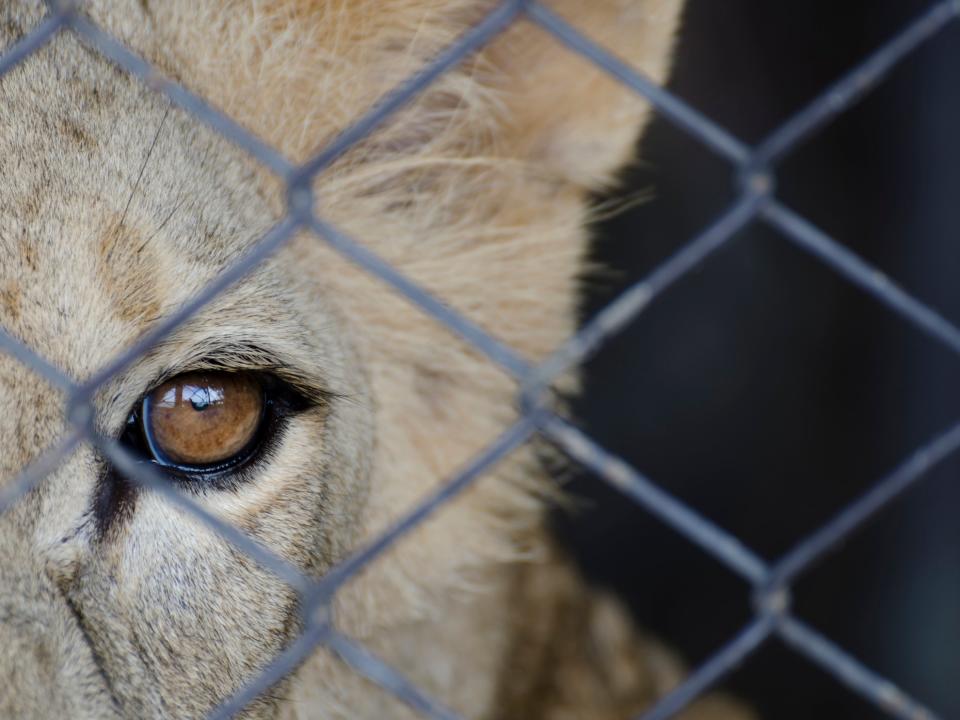British hunters encouraged by killing of Cecil the lion to shoot more big cats in South Africa’s deadly breeding farms
The infamous killing of Cecil the lion has encouraged British hunters to go to South Africa and shoot dead more big cats than ever, figures reveal.
Experts had believed worldwide revulsion at the shooting would mark a turning point for the endangered species and the start of a decline in “trophy” hunting.
But instead the number of British hunters targeting farmed lions and bringing home their body parts more than doubled in the three years after Cecil’s death, compared with the three years before, according to statistics from the global wildlife trade regulator.
Imports after the 2015 shooting jumped to 59, against 27 before. In 2007 just four lion trophies were brought into Britain, but in 2017 the figure was 15, according to the Convention on the International Trade in Endangered Species of Wild Fauna and Flora (Cites).
Conservation experts said they were horrified that lion hunting had become increasingly popular with British killers and stepped up calls for the government to uphold its pledges to ban the grisly imports.
American dentist Walter Palmer was forced to go into hiding following an international outcry when he shot Cecil, one of Zimbabwe’s most cherished lions.
Around half the body parts brought into Britain legally are mounted lion heads, but others include whole lion bodies, skulls, feet and skins – some turned into rugs.
The big cats are bred specifically to be shot by wealthy hunters in South Africa’s lucrative “canned hunting” industry.
The deadly dozen
Countries whose hunters imported most South African ‘canned hunt’ lion parts in 2017
1 USA 84
2 Hungary 74
3 Spain 33
4 Brazil 32
5 Canada 31
6 Poland 27
7 Mexico 26
8 Germany 23
9 Latvia 21
10 Russia 20
11 Belgium 14
12 Britain 11
As the new figures came to light in a report by the Campaign to Ban Trophy Hunting, conservationists dubbed Britain one of a “deadly dozen” top nations responsible for killing the most lions on canned hunting estates.
The Independent has previously revealed how the government has broken pledges to halt imports.
In 2017 America allowed the most imports, 84, followed by Hungary with 74.
Eduardo Gonçalves, founder of the campaign group, said one safari centre had more business after Cecil’s killing because the publicity seemed to make potential trophy hunters aware of something they did not previously know existed.
“It’s also possible there was a ‘rush’ because of the threat from then Defra minister Rory Stewart to shut down trophy imports before the door closed,” he said.
In November 2015 Mr Stewart promised that the government would ban lion trophy imports by the end of 2017 unless there were “improvements in the way hunting takes place in certain countries, judged against strict criteria”.
Mr Gonçalves said: “Britain should hang its head in shame over its role in this disgraceful industry."
He added that it was time that Environment Secretary Michael Gove "took action to help bring an end to this vile industry.”
Last year The Independent revealed that tourists were supporting “canned” lion hunting by paying farms for experiences such as feeding the animals.
South Africa has an estimated 300 or more breeding farms, housing up to 12,000 big cats. Demand for parts for “medicine” in Asia also fuels the industry.
Britain should hang its head in shame over its role in this disgraceful industry
Eduardo Gonçalves
Sometimes they cross lions and tigers to create “ligers” which attract even higher prices from shooters.
Some farms have stinking and bloody lion slaughterhouses on site and keep animals in steel transport crates too small for them to stand up or turn around in, according to The Mail on Sunday.
Last year Labour leader Jeremy Corbyn joined conservationists in calling for an import ban, and more than 160 MPs of all parties have signed an Early Day Motion over it.
Asked about a possible ban, Defra referred to a statement earlier this year by minister Therese Coffey, who said: “The government takes the conservation of species seriously.”
A spokeswoman said Mr Gove would be chairing a meeting on the issue in the next fortnight, but it was not clear with whom.

 Yahoo News
Yahoo News 

